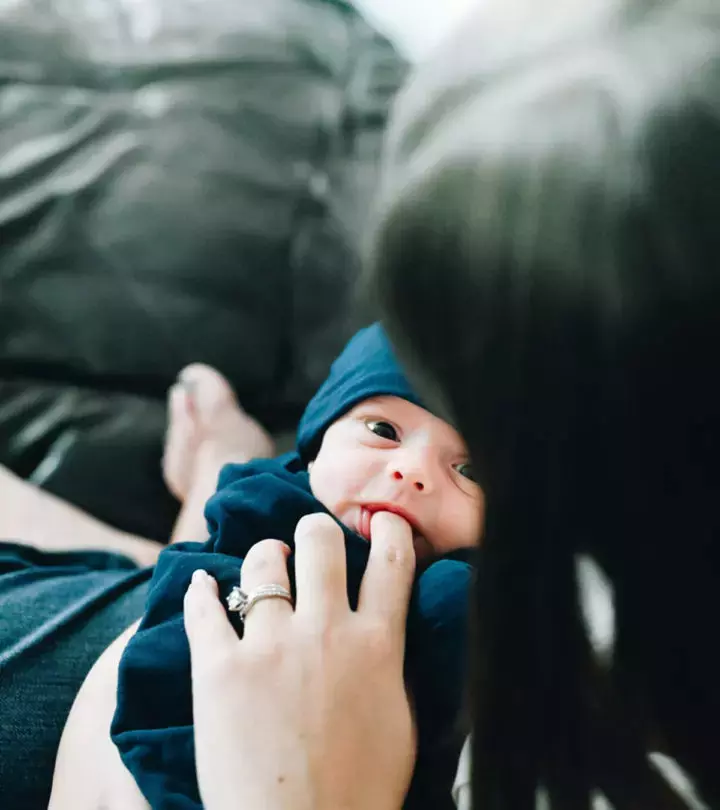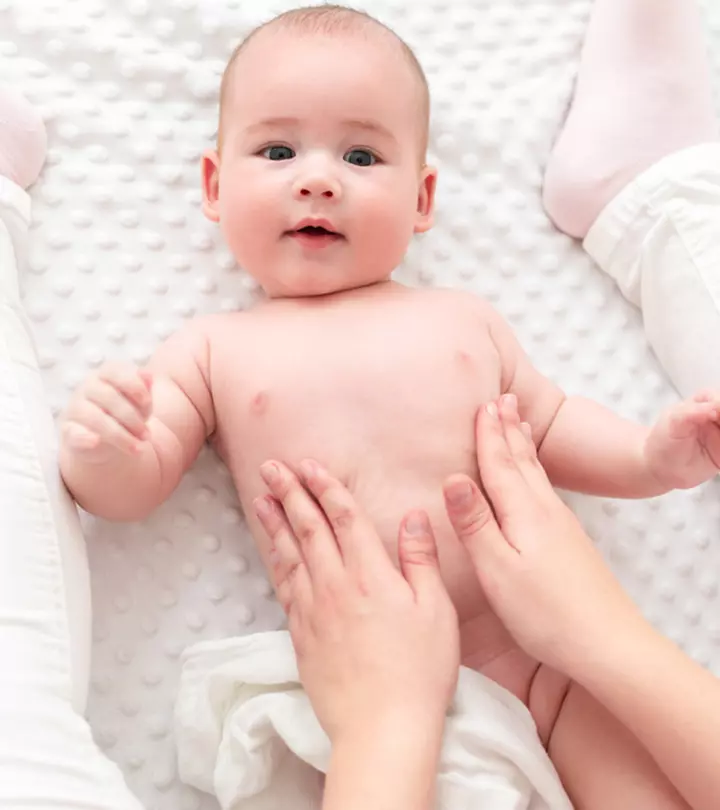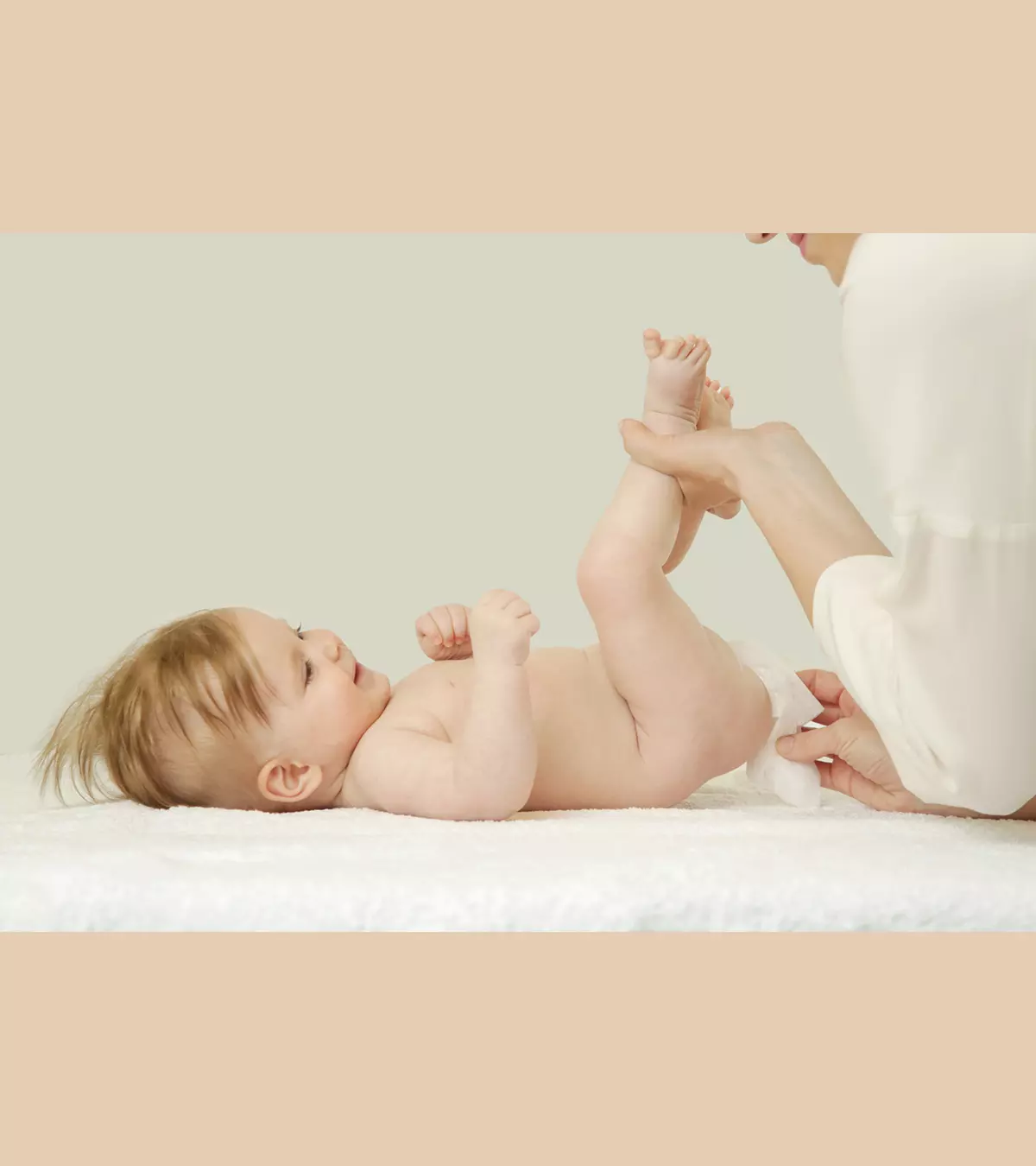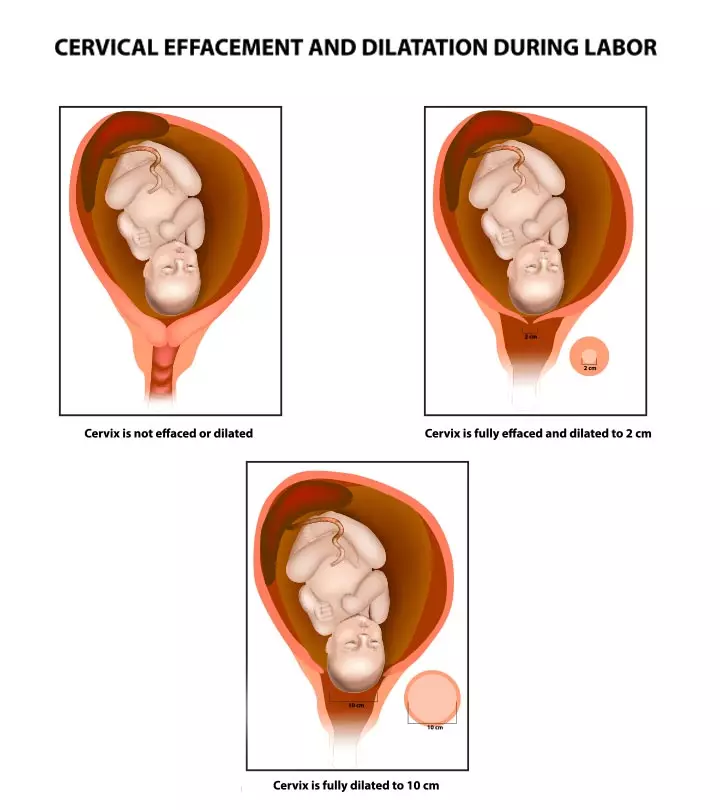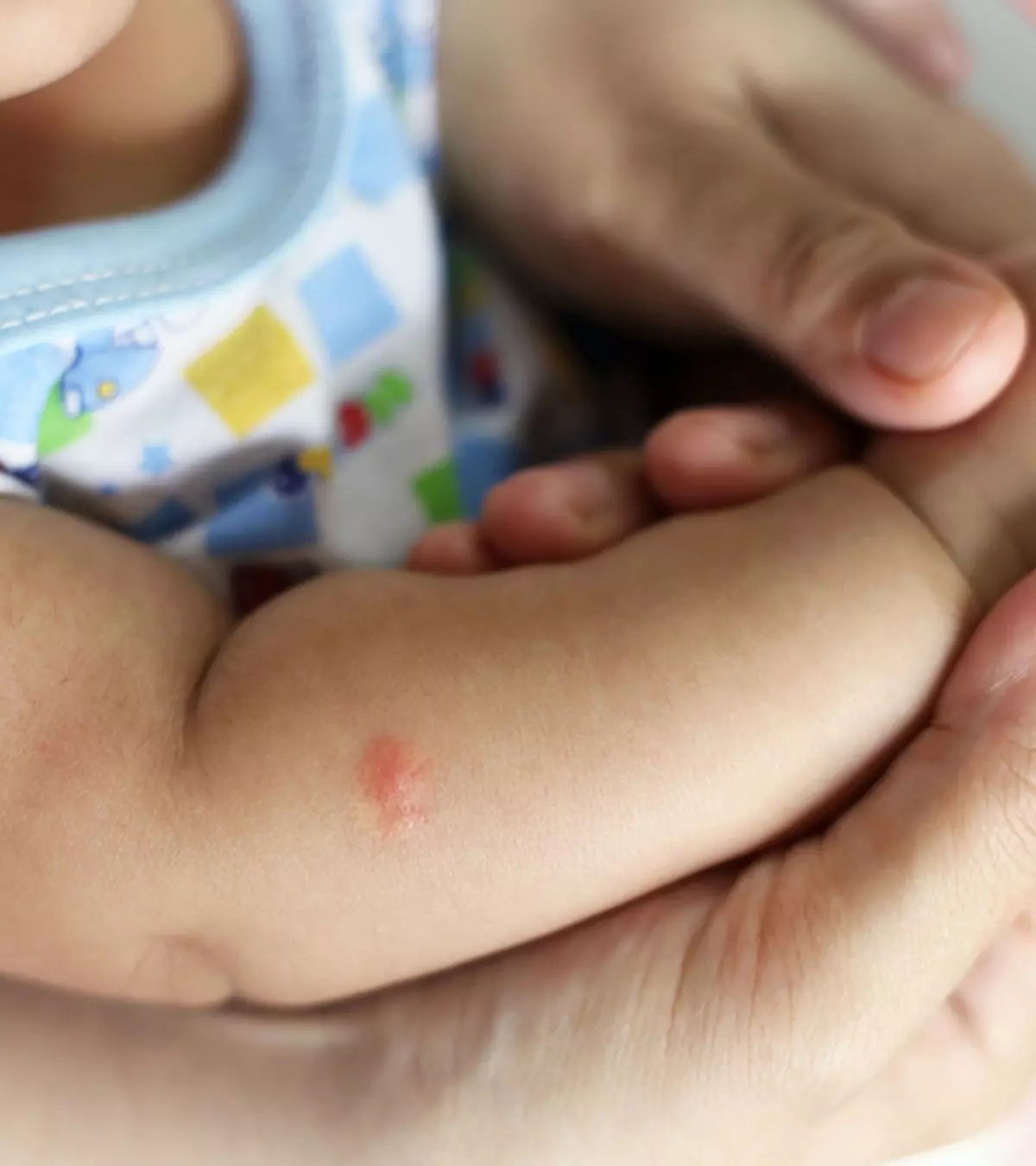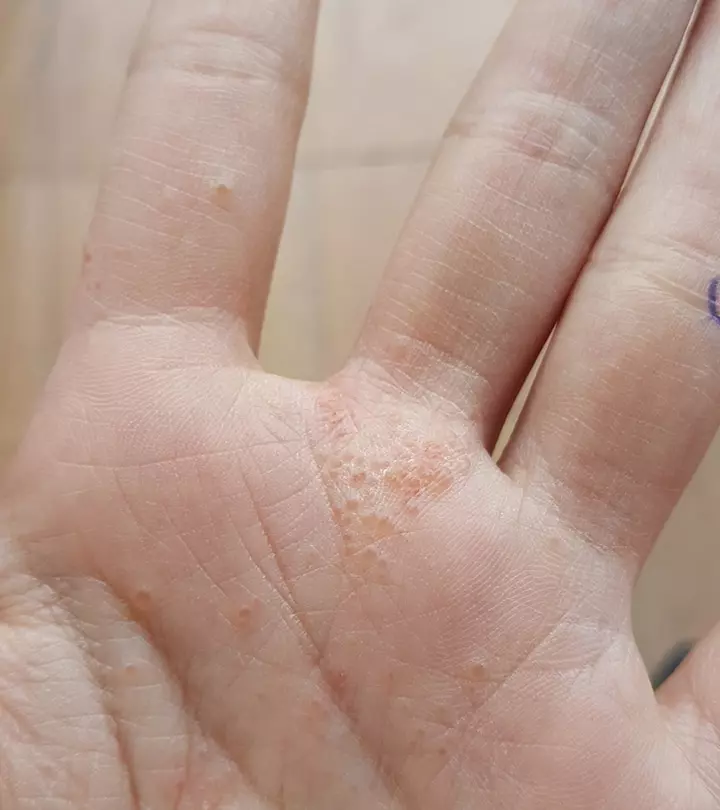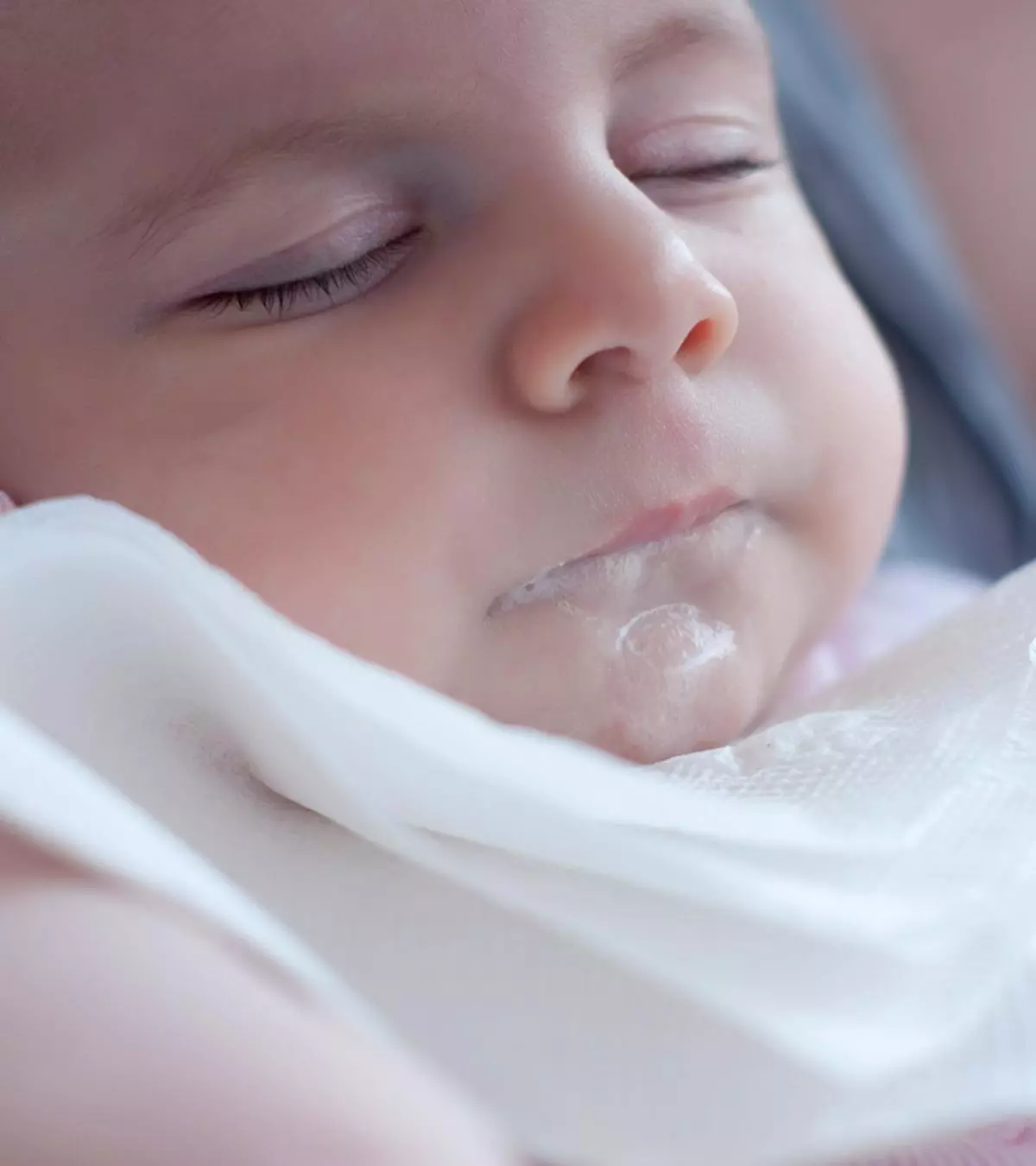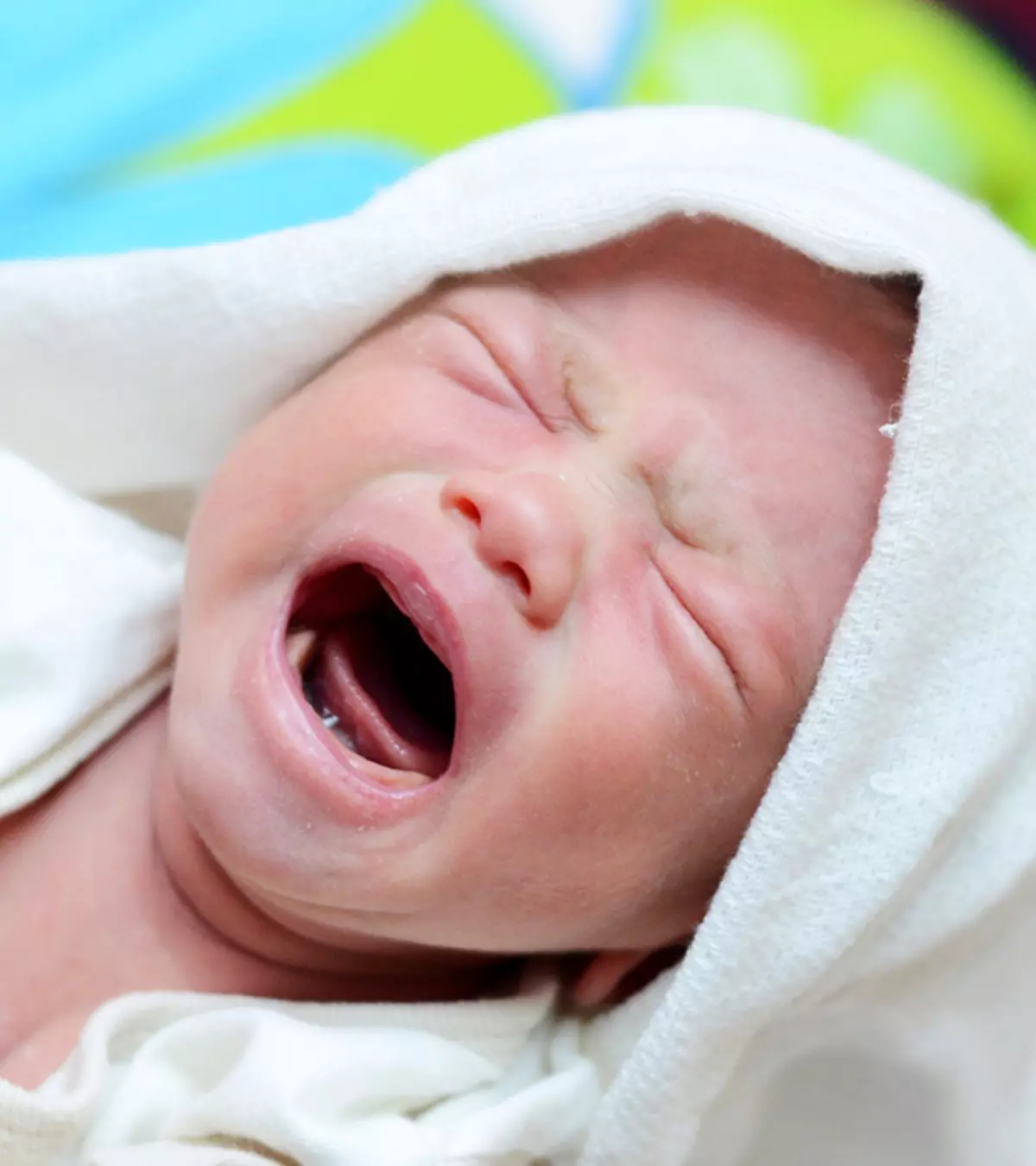
Image: Shutterstock
Many parents complain that their baby wakes up crying in the middle of the night. This could be due to several reasons, including feeling hot, wet, cold, hungry, frightened, or irritable. Since babies have small tummies and food is digested rapidly, they feel hungry quite often. In addition, babies can’t sleep eight to nine hours at a stretch in the initial days as they are used to being securely wrapped in the mother’s womb before birth.
Hence, babies like to be held close to a parent as they need a sense of comfort in the initial days after birth, and sleeping independently for a long time is often a tough milestone to attain.
Therefore, crying is the basic means of communication for babies. If you are concerned about excessive crying in your baby, contact their pediatrician to rule out the possibility of any pain or underlying health conditions.
Read on to learn about the possible causes and some tips that could help deal with babies waking up crying.
Key Pointers
- A baby waking up crying could be due to several benign reasons such as separation anxiety or hunger.
- However, if a baby cries for several hours and has physical symptoms, it may indicate an underlying problem.
- Determining the exact cause could stop crying and help the baby sleep peacefully.
At What Age Do Babies Stop Crying When They Wake Up?
There is no particular age when a baby stops crying when they wake up. Older babies tend to sleep for long without interruptions. However, if they are disturbed by anything during sleep, your baby may wake up crying.
Sleep needs may vary depending on the infant’s age. A newborn tends to sleep several times for a shorter duration. The duration gradually increases, while the frequency of sleep decreases with age (1).
Older babies tend to sleep for longer during the night. That means babies who are nine months old may have longer nighttime sleep than a three-month-old baby.
Most babies may sleep for six hours at a stretch and cry due to hunger when they wake up. Babies usually do not sleep throughout the night before the age of four to six months of age.
Why Does A Baby Wake Up Crying?
It is normal for a baby to wake up crying from sleep once or twice in the night. They tend to flail their legs and scream until you hold or feed them to calm them down. The reasons for a baby waking up crying can range from something normal as a growth spurt or hunger to a health problem.
Always look for the reasons behind baby crying behaviors and try to resolve them.
Most babies may wake up crying after night- or day-time naps due to the following reasons (2).
1. Sleep cycles
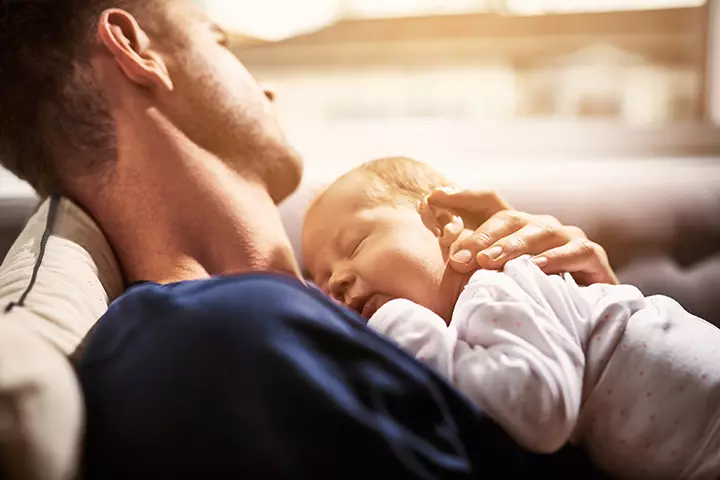
Image: IStock
Sleep cycle changes throughout the sleep and may range from a deep sleep to a light state of rest. It is normal to wake up from sleep and fall asleep again. Babies struggle to fall asleep by themselves if they wake up during sleep and often cry for parental or caregivers’ assistance to fall asleep again (3).
Marian Thomas, a mom and blogger, shares her experience of dealing with her baby waking up frequently. She says, “One of the biggest challenges for me as a new mom was dealing with sleep deprivation. Our son wasn’t a good sleeper from the start. He woke up every one and a half hours and needed to drink milk to go back to sleep. After months of nursing him back to sleep, I was completely exhausted (i).”
 Did you know?
Did you know?2. Physical discomfort
An illness or physical condition can make it hard for babies to sleep due to pain or discomfort. It’s important to ensure the baby is comfortable by checking for signs of discomfort, as difficulties due to teething, fever, ear infections, or other diseases could make your baby cry and wake up from sleep. Additionally, babies experience disturbed sleep if they have allergies such as runny nose and itchy eyes.
3. Separation anxiety
The fear of being away from the parents or caregiver is called separation anxiety. Although it is one of the developmental milestones, some babies can be extremely clingy and have sleep problems during this phase. Separation anxiety could cause a baby to cry when they wake up from sleep. If your baby requires co-sleeping, reassuring, feeding, or holding to fall asleep, they are not yet ready to sleep on their own.
4. New milestones
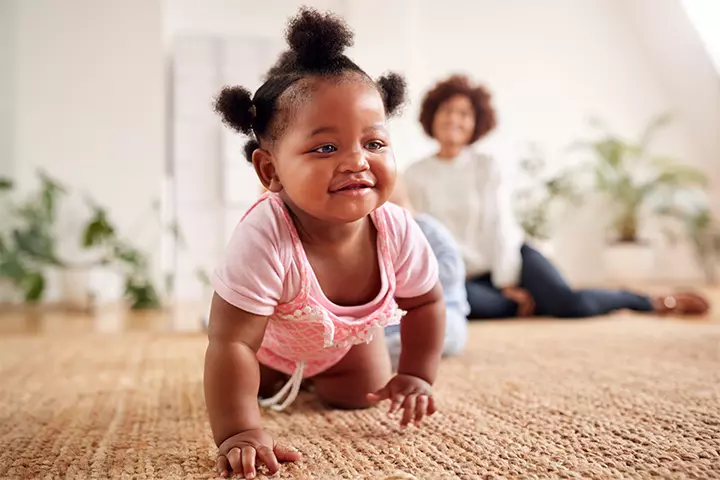
Image: IStock
Babies may get excited when they learn new skills such as crawling, turning head, walking, sitting, etc. They tend to try their new skills in the crib at night and often end up crying since they may find it hard to fall asleep again.
5. Hunger
Babies who are not fed adequately during the day may wake up crying in the middle of the night due to hunger. You may find increased night waking behavior when they are growing and need more food than before.
 Quick fact
Quick fact6. Dirty diaper
Babies may cry if they have a soiled diaper since it may irritate the skin, and they may need a diaper change.
7. Sleepy
Babies who wake up from sleep may cry if they are tired and sleepy but are unable to self-soothe to fall asleep again.
Babies may also wake up and cry due to sleep regression and general sleep disturbances, such as temperature changes in the room, mosquito bites, higher noise levels in the room, etc.
When To Call The Pediatrician?
You may contact the pediatrician if your baby has trouble falling asleep after waking up and cries for several hours. You may also seek medical care if your baby exhibits any physical symptoms of gas or colic, is unusually fussy, or has a fever.
How To Stop The Baby From Crying When Waking Up?
You may try the following tips to stop your baby from crying when they wake up and create a good sleep environment.
- Encourage self-soothing; this may help them to put themselves back to sleep if they wake up in the night.
- Playing games like peek-a-boo or trying a short duration of separation each day could reduce your baby’s clinginess and separation anxiety.
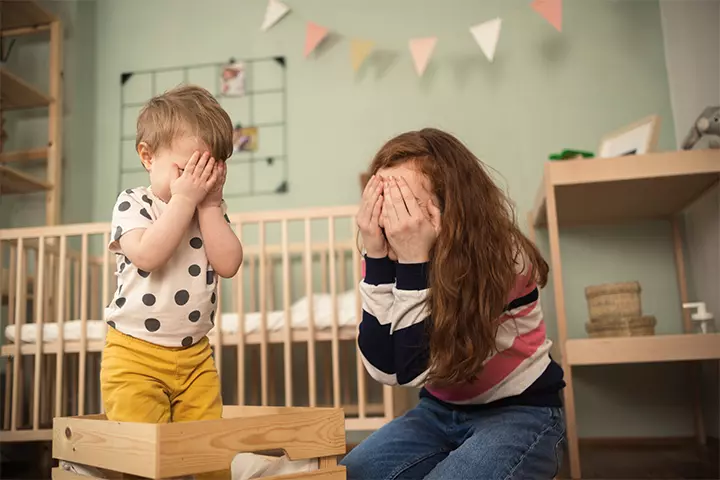
Image: IStock
- Use a night light or pull the curtains a bit so that babies can stare at something when they wake up and sleep again.
- If you discover your baby standing or sitting in the crib and crying, put them back in their sleeping position. Eventually, they will learn to do it themselves.
- If the baby cries due to teething, consult a pediatrician who can prescribe pain medications.

Image: Shutterstock
- If your baby has a common cold, performing nasal suction before bedtime could open the nasal passages and help the baby sleep well.
- Breastfeeding or bottle-feeding the baby adequately through the day to prevent hunger pangs at night. If you are weaning your baby, ensure they are consuming enough solid food.
Feeding to fall asleep is a common practice. However, babies who have this habit may eventually find it difficult to sleep on their own. Thus, you may encourage them to feed when they are active and self-soothe to sleep.
 Point to consider
Point to considerWays To Ensure Your Baby Is Sleeping Safely
The American Academy of Pediatrics recommends the following tips to make your baby sleep safely and also for you to sleep as much as possible (4).
- Babies should always sleep on their backs, for naps and night sleep, until the age of one year.

Image: IStock
- Sleep on firm surfaces that are free of soft objects and bedding. A mattress with a fitted sheet is recommended to provide the baby a safe sleep environment and warmth.
- Do not expose your sleeping baby to any smoke.
- Avoid using alcohol, sedatives, or illicit drugs as this could prevent you from detecting the baby’s cry.
- Pacifier use at night or nap time may protect the baby from sudden infant death syndrome (SIDS).
- Pacifiers should be in the baby’s mouth or away. Do not attach pacifiers to clothes or put them on a string around the baby’s neck.
- Keep the room dark and quiet. Don’t expose the baby to bright light at night because it suppresses melatonin production and may disturb their sleep quality and quantity.
- Let your baby sleep in their crib placed in your room until their first birthday.
- Singing lullabies, rocking, swaddling, cuddling, calming, or patting the baby gently till they get drowsy can help them fall asleep faster.
- The room temperature should not be too hot or cold so that the baby feels comfortable, and some babies may even benefit from white noise to fall asleep.
Frequently Asked Questions
1. Why does my baby wake up crying and appearing scared?
Babies may wake up crying and appearing scared if they experience nightmares or night terrors. If they wake up from a scary dream, they may have trouble falling asleep (5).
2. What happens if I let my baby cry for too long?
Research shows that excessive crying in infants doubles the risk of overall problematic behavior, hyperactivity, conduct problems, and mood problems by age five or six years (6).
It is common for a young baby to wake up crying in the middle of the night. Shorter sleep duration and inability to self soothe to sleep can be a reason for crying while waking up. A wet diaper, illnesses, the excitement of meeting new milestones, and hunger can also cause a baby to cry. Separation anxiety can also cause cries, and constant reassurance from parents may improve this condition. Usually, most babies go back to sleep after their needs are met or while soothing. However, you may contact the pediatrician if your baby struggles to fall asleep or cries for a longer time.
Infographic: Why Do Babies Wake Up Crying
It is common for babies to wake up crying and is seldom a cause for concern. Nevertheless, it is good to know the cause. This infographic will be useful for it provides the various reasons why a baby can wake up crying, helping you tackle the situation better. Illustration: Momjunction Design Team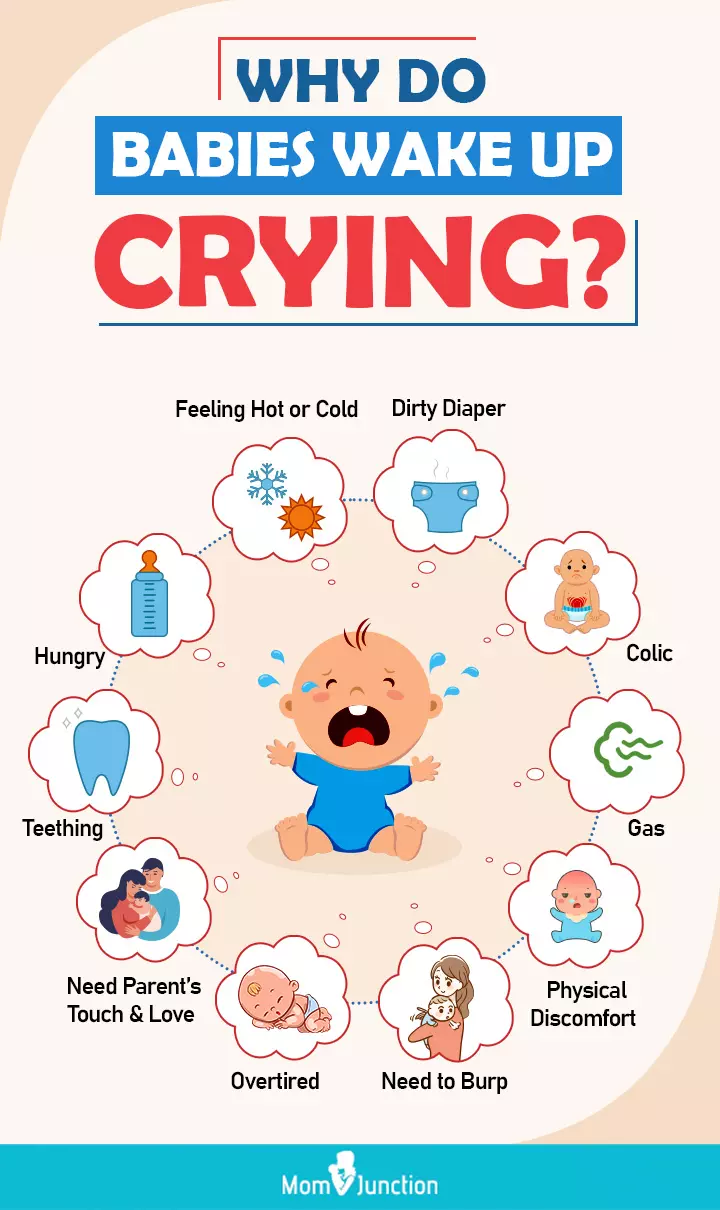
Illustration: Why Does Your Baby Wake Up Crying? 7 Reasons And How To Stop It

Image: Stable Diffusion/MomJunction Design Team
Discover expert advice on getting your baby to sleep through the night. Get vital advice from experts to ensure your baby sleeps soundly and peacefully.
Personal Experience: Source
MomJunction articles include first-hand experiences to provide you with better insights through real-life narratives. Here are the sources of personal accounts referenced in this article.
i. How I got my baby to sleep through the night with no tears;https://medium.com/@marianjthomas/how-i-got-my-baby-to-sleep-through-the-night-with-no-tears-7e098a298108
References
1. Infant Sleep; Columbia University Irving Medical Center
2. Why Is My Baby Waking In The Night?; The Sleep store
3. Baby crying at night: Normal or cause for concern?; Reid Health
4. Frequent Night Awakenings: Why Is My Baby Crying During Sleep?; Children’s Hospital Colorado
5. Nightmares and Night Terrors in Preschoolers;American Academy of Pediatrics
6. Laetitia Joanna Clara Antonia Smarius, et al.; Excessive infant crying doubles the risk of mood and behavioral problems at age 5: evidence for mediation by maternal characteristics; National Library of Medicine
7. Infant Sleep; Stanford Medicine.
8. Responding To Your Baby’s Cries; American Academy of Pediatrics
Community Experiences
Join the conversation and become a part of our nurturing community! Share your stories, experiences, and insights to connect with fellow parents.
Read full bio of Pranjul Tandon
Read full bio of Dr Bisny T. Joseph
Read full bio of Rohit Garoo
Read full bio of Shinta Liz Sunny










